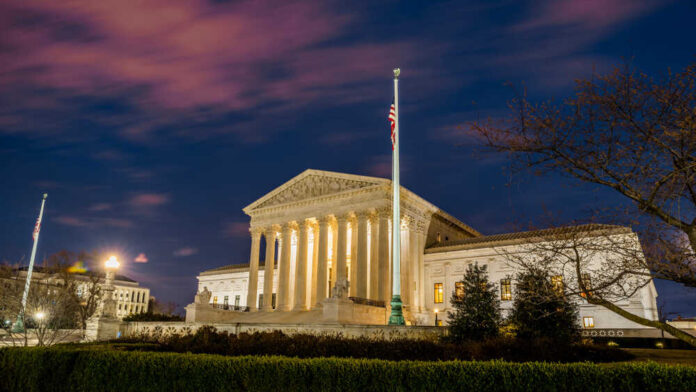
In a decision that angered many progressists, the United States Supreme Court is poised to make a monumental decision that could finally dismantle a key portion of government-overreaching Obamacare.
Christian business owners in Texas are challenging the constitutionality of an unelected task force that forces employers to pay for HIV prevention drugs and other services that violate their religious beliefs.
The lawsuit could free millions of Americans from government healthcare mandates that have existed since 2010.
The Supreme Court case, Kennedy v. Braidwood Management, centers on the Affordable Care Act provision that requires insurance companies to cover certain preventive health services at no cost to patients.
At issue is the U.S. Preventive Services Task Force, a government body whose members have been given extraordinary power to determine which medical services must be covered by all insurance plans, without being appointed adequately as required by the Constitution.
Conservative Christian employers in Texas filed the lawsuit, arguing that the task force’s structure violates the Constitution’s Appointments Clause and that specific coverage mandates violate their religious freedom.
Particularly objectionable to the plaintiffs is the requirement to cover PrEP, a medication that prevents HIV transmission, which they believe promotes behavior counter to their religious values.
Lower courts have already agreed with the plaintiffs.
The Fifth Circuit Court of Appeals ruled the task force unconstitutional, finding that its members wield significant authority but were never properly appointed by the President or confirmed by the Senate as required by the Constitution.
However, the ruling was limited to just eight Texas companies while the Supreme Court considers the broader implications.
The task force currently mandates coverage for numerous services, including colonoscopies, statins for heart disease, and breast cancer medications.
If the Supreme Court finds the task force unconstitutional, insurance companies would regain the freedom to determine their own coverage plans.
While liberals claim this would cause a healthcare crisis, market forces would likely maintain coverage for truly necessary services while allowing flexibility for faith-based objections.
Moreover, the Trump administration has taken the surprising step of defending the task force’s constitutionality, arguing that the health secretary maintains sufficient oversight of the body.
This position has disappointed some conservatives who see the task force as another example of unelected bureaucrats wielding extraordinary power over Americans’ healthcare choices and religious freedoms.
The heart of this case is whether the government can force Americans to pay for services that violate their religious beliefs.
The plaintiffs are not seeking to ban medical services – they want the constitutional right to decline participation in funding treatments that conflict with their religious convictions.
The Supreme Court is expected to issue a ruling by June 2025.
If the justices uphold the Fifth Circuit’s decision, it would represent a significant victory for religious liberty and constitutional governance, restricting the federal government’s ability to compel Americans to fund services against their conscience.
The June ruling will reveal whether Americans continue to enjoy the protective umbrella of accessible, cost-free preventive health care or face a more complex and potentially expensive healthcare future.



















